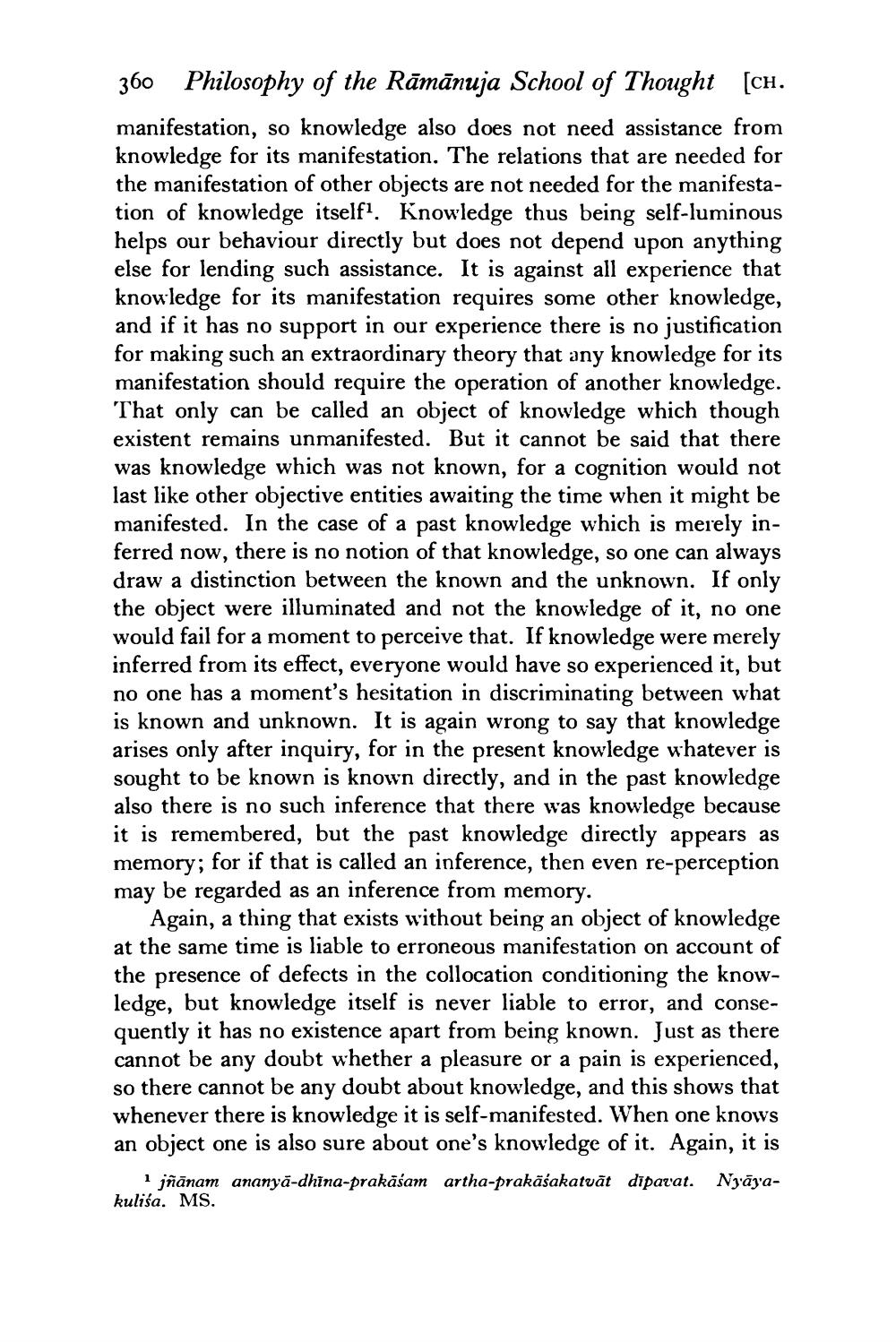________________
360 Philosophy of the Rāmānuja School of Thought [CH. manifestation, so knowledge also does not need assistance from knowledge for its manifestation. The relations that are needed for the manifestation of other objects are not needed for the manifestation of knowledge itself?. Knowledge thus being self-luminous helps our behaviour directly but does not depend upon anything else for lending such assistance. It is against all experience that knowledge for its manifestation requires some other knowledge, and if it has no support in our experience there is no justification for making such an extraordinary theory that any knowledge for its manifestation should require the operation of another knowledge. That only can be called an object of knowledge which though existent remains unmanifested. But it cannot be said that there was knowledge which was not known, for a cognition would not last like other objective entities awaiting the time when it might be manifested. In the case of a past knowledge which is merely inferred now, there is no notion of that knowledge, so one can always draw a distinction between the known and the unknown. If only the object were illuminated and not the knowledge of it, no one would fail for a moment to perceive that. If knowledge were merely inferred from its effect, everyone would have so experienced it, but no one has a moment's hesitation in discriminating between what is known and unknown. It is again wrong to say that knowledge arises only after inquiry, for in the present knowledge whatever is sought to be known is known directly, and in the past knowledge also there is no such inference that there was knowledge because it is remembered, but the past knowledge directly appears as memory; for if that is called an inference, then even re-perception may be regarded as an inference from memory.
Again, a thing that exists without being an object of knowledge at the same time is liable to erroneous manifestation on account of the presence of defects in the collocation conditioning the knowledge, but knowledge itself is never liable to error, and consequently it has no existence apart from being known. Just as there cannot be any doubt whether a pleasure or a pain is experienced, so there cannot be any doubt about knowledge, and this shows that whenever there is knowledge it is self-manifested. When one knows an object one is also sure about one's knowledge of it. Again, it is
1 jñānam ananya-dhina-prakāśam artha-prakāšakatvāt diparat. Nyāyakulisa. MS.




